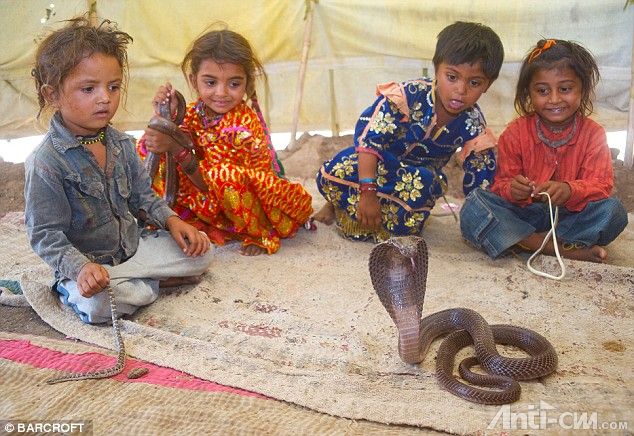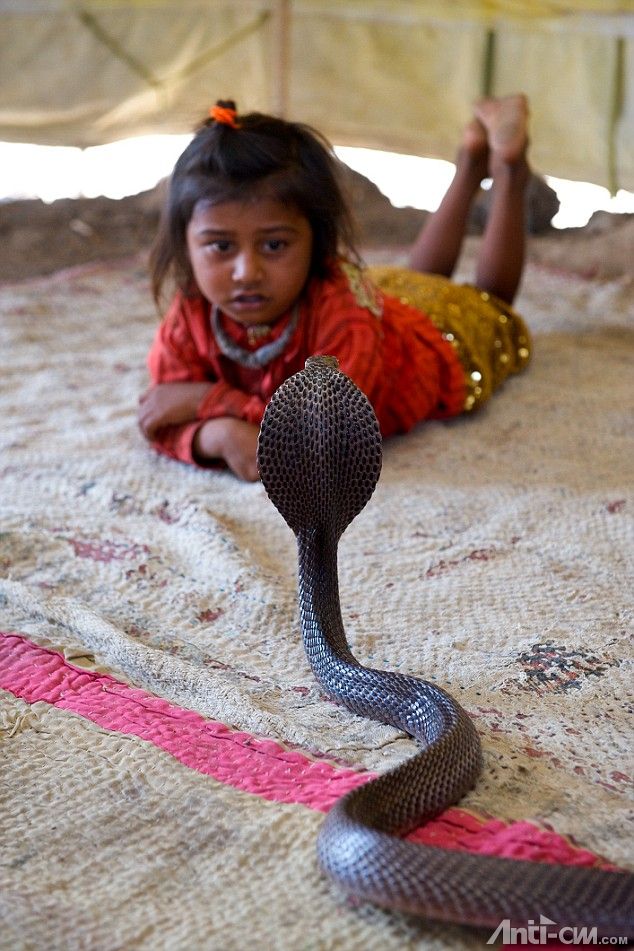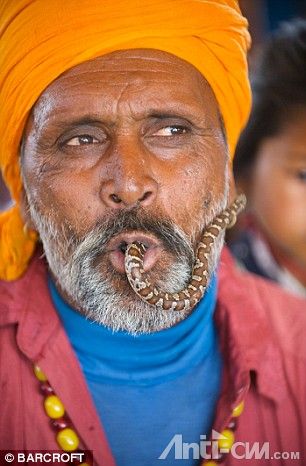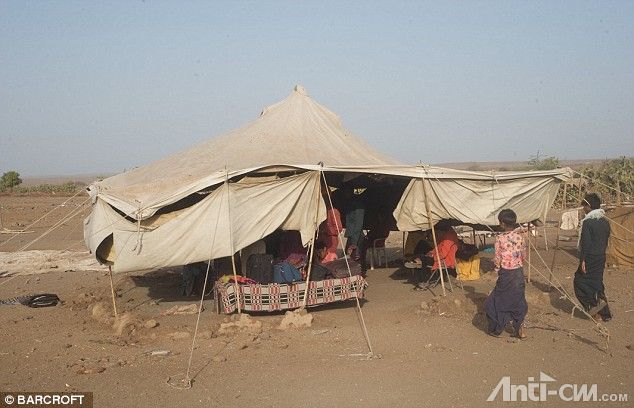|
|
Indian village where children as young as two are taught to be snake charmers
http://www.mailonsunday.co.uk/news/worldnews/article-1192122/Indian-village-children-young-taught-snake-charmers.html
By Mail Foreign Service Last updated at 5:45 PM on 10th June 2009
[size=1.2em]Playing with deadly serpents like they were toys, the children of India's 600-strong Vadi tribe are just beginning their training in the ways of snake charming.
[size=1.2em]
[size=1.2em]Sitting less than a metre away from a poisonous cobra, the children show no signs of fear or flinch when faced with one of the sub-continents most potent killers.
[size=1.2em]
[size=1.2em]First introduced to snakes at the age of two, all Vadi children complete a ten-year initiation ritual that culminates in the boys becoming fully-fledged performing snake charmers.

Snake school: Children of the Vadi tribe play with a deadly cobra as part of their training to become fully-fledged charmers
[size=1.2em]Divided between the sexes, the act of snake charming with traditional flute is the role of the men, while the Vadi women care for the snakes and handle them when their husbands or brothers are not around.
[size=1.2em]
[size=1.2em]'The training begins at two, the children then are then taught the ancient ways of snake charming until they are ready to take up their roles in our community,' said chief snake charmer Babanath Mithunath Madari, 60.
[size=1.2em]
[size=1.2em]'At twelve the children will know everything that they can know about snakes.
[size=1.2em]
[size=1.2em]'They are then ready to continue the traditions of the Vadi tribe which can be stretched back over one thousands years to India's great Raja's (kings).'

Fearless: Girls like Meru Nath Madari, four, are taught to care for the snakes. Boys, meanwhile, learn to charm them with the traditional flute

Master charmer: Babanath Mithunat Madari shows off the tricks of his trade
[size=1.2em]The nomadic Vadi tribe, which lives in the south of the Indian state of Gujarat take great pride in their association with the areas deadly snakes.
[size=1.2em]
[size=1.2em]Never staying in one place for more than six months, the Vadi have an almost mythical attachment to snakes and especially cobras.
[size=1.2em]'At night, as we sit around our huts in the open desert and explain to the pact that our descendants made with Naga, the snake god,' Madari said.
[size=1.2em]
[size=1.2em]'We explain to the children how we only take a snake away from its natural habitat for a maximum of seven months.
[size=1.2em]
[size=1.2em]'Any more is disrespectful to the snake and especially after the charmer and snake have worked together so closely and so intimately.
[size=1.2em]
[size=1.2em]'Both are trusting their lives to the other one.'
[size=1.2em]The cobras are fed a herbal mixture which Madari says renders the snake's deadly poison useless.
[size=1.2em]
[size=1.2em]'We do not cut the fangs off the snakes as that would be cruel,' the tribal chief said.
[size=1.2em]'We do not harm the them because they are like children to us.
[size=1.2em]'In all my years with snakes, from my childhood to now, I have only heard of one man to have been bitten.
[size=1.2em]'This was because he kept the snake longer than seven months.'
[size=1.2em]Since snake charming was made illegal in 1991, the Vadi have come under huge pressure from the state and national governments of India.
[size=1.2em]
[size=1.2em]'The police routinely search us strip us of our snakes whenever we cross their paths,' Madari said.
[size=1.2em]
[size=1.2em]'We live 25km away from the town of Rajkot at the moment, and every time we try to enter the village for food or even bottle of water, the villagers chase us away.
[size=1.2em]
[size=1.2em]'This upsets me greatly because this village is the birthplace of the father of our nation Gandhi.
[size=1.2em]
[size=1.2em]'Would he stop us from continuing our traditions? The rich of India have no time for the poor.'

The Vadi community's settlement on the outskirts of Rajkot: Though snake-charming is banned, the tribe keep up the tradition

|
Children, Indian, Two, village, Young, Children, Indian, Two, village, Young, Children, Indian, Two, village, Young
|